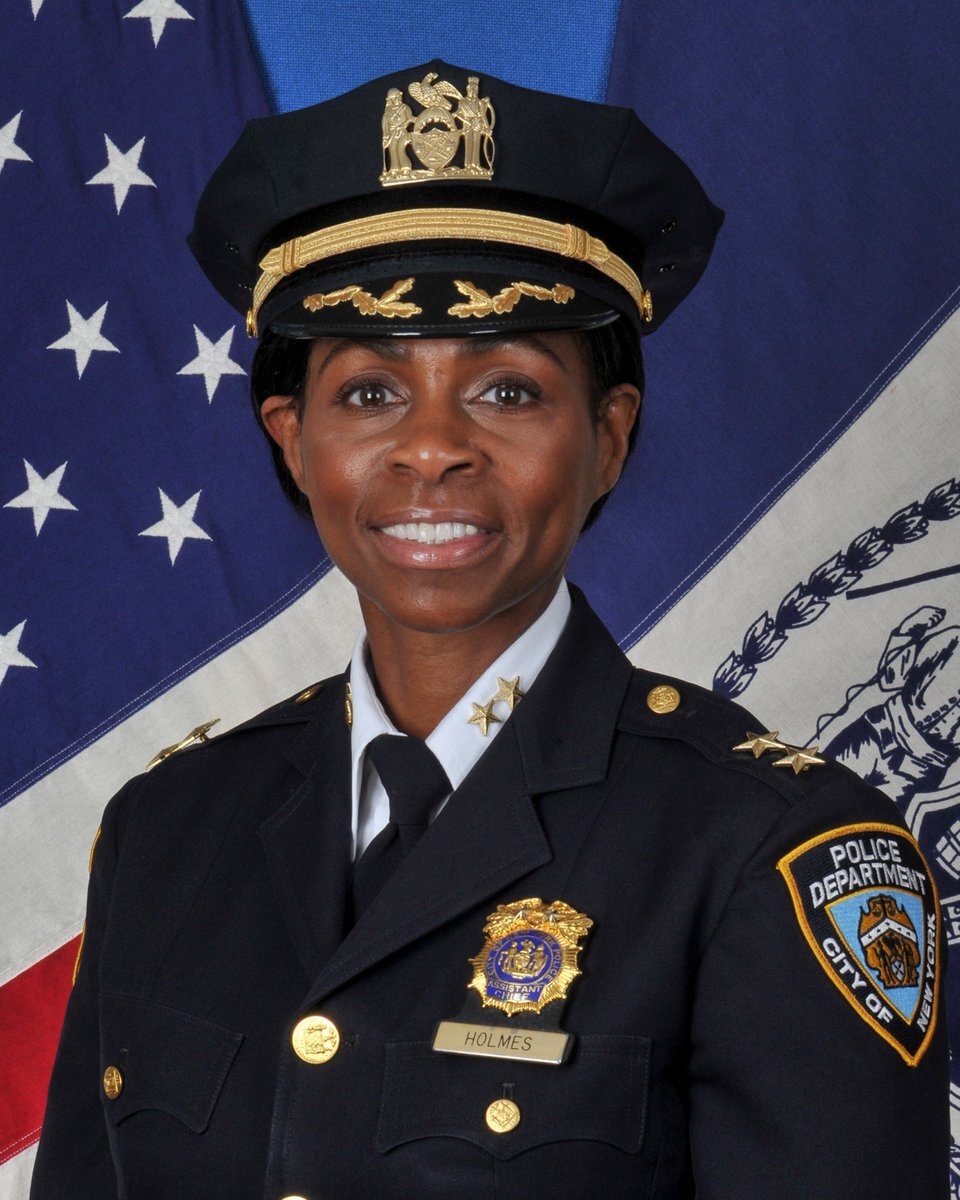Chief of School Safety returns to NYPD after stint in private sector
/Assistant Chief Juanita Holmes returned to the NYPD after a year in the private sector. Holmes is one of the highest-ranking black women in the department and has served in the NYPD for more than 30 years. Photo via NYPD
By David Brand
After more than three decades in uniform, Assistant Chief Juanita Holmes made the decision to leave the NYPD and take a lucrative job as head of security for a global financial services last year. The job paid well and allowed her to travel, but her heart wasn’t in it.
Holmes, one of the highest ranking black women in the department, wanted to return to the NYPD, and new Police Commissioner Dermot Shea agreed. Earlier this year, he appointed Holmes as chief of the School Safety Division, a new role after her tenure as head of Queens North borough commander
“I decided to come back because it’s more fulfilling than the private sector,” Holmes said. “I grew up in the police department. I matured here [and] I missed it.”
Holmes now commands more than 5,000 school safety agents, and she plans to be their biggest advocate. It helps that she has personal experience in the role. Holmes was a school cop at Far Rockaway High School in the 1980s, before the NYPD took over law enforcement in schools.
“Coming into school safety, I felt school safety agents didn’t deserve the respect that they warranted,” Holmes said.
“They need the acknowledgement for the hard work they do keeping children safe and I don’t think they get the recognition that they should get,” she continued. “I vow that all they are doing will be publicly exposed. They do a lot of great work and I attend every CompStat meeting and I am very vocal.”
School safety agents — or school resource officers, as Holmes likes to say — have a unique responsibility to ensure order at schools while not condemning children to the criminal justice system for common kid behavior.
A 2019 NYPD policy change was designed to reduce the number of arrests and summonses that officers execute in schools, while also discouraging teachers and staff from referring kids to school safety agents for minor misbehavior.
The agreement addresses the “school to prison pipeline” by advising school safety agents not to arrest or issue summonses “whenever possible” for offenses like marijuana possession, disorderly conduct, spitting or graffiti, Chalkbeat reported last year.
Holmes acknowledged that discretion and understanding are vital to the position of school safety agent.
“They know our children, they’re dealing with them for hours in the day,” she said. “They are in a position to care for the most precious gift of any parent, which is children.”
Problems abound, however. A Flushing High School student was locked in holding cells for 30 hours after striking a safety agent who tried to intervene in an after-school fight, the Daily News reported earlier this month. The student, 16, said she mistakenly hit the school safety agent after the agent pulled her hair.
School safety agents undergo crisis intervention training and are educated on child behavioral and developmental health, Holmes said. The goal is to understand why children behave the way they do and avoid escalating situations like the fight in Flushing, she said.
“We know children are children and children do silly things. That doesn’t mean you criminalize everything,” Holmes said.
Holmes said part of her job is to advocate for the rights and needs of the New Yorkers who work as school safety agents. Starting salary for school safety agents — most of whom are women — is $32,426. Agents earn $46,737 after seven years on the job.
Some school safety agents experience homelessness, she said — a problem she wants the city to end immediately.
“There are school safety agents that are living in shelters. To me that shouldn’t be,” Holmes said. “You have people who are employed working, showing up every day, giving their best and still not able to have a proper roof over their head.”




